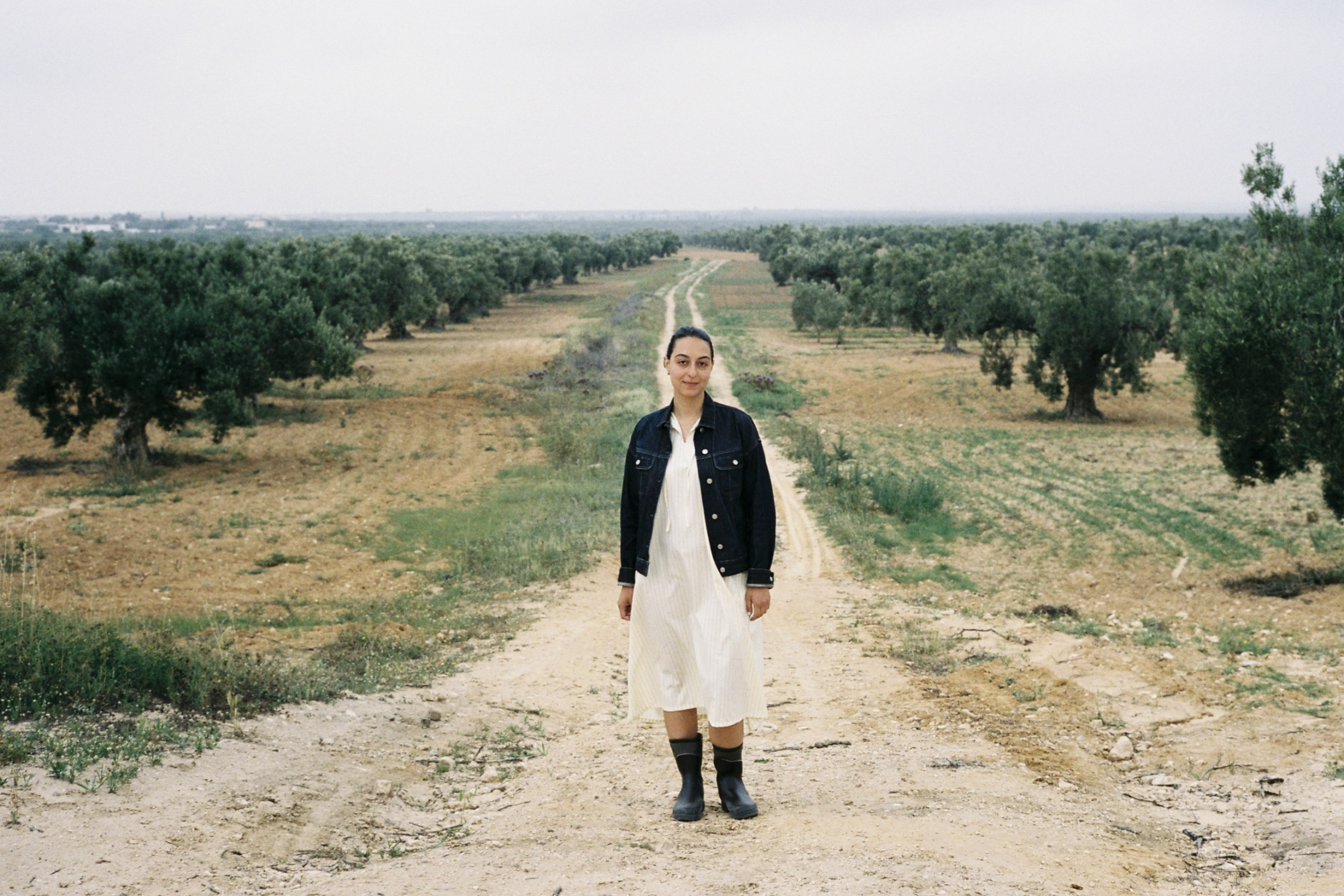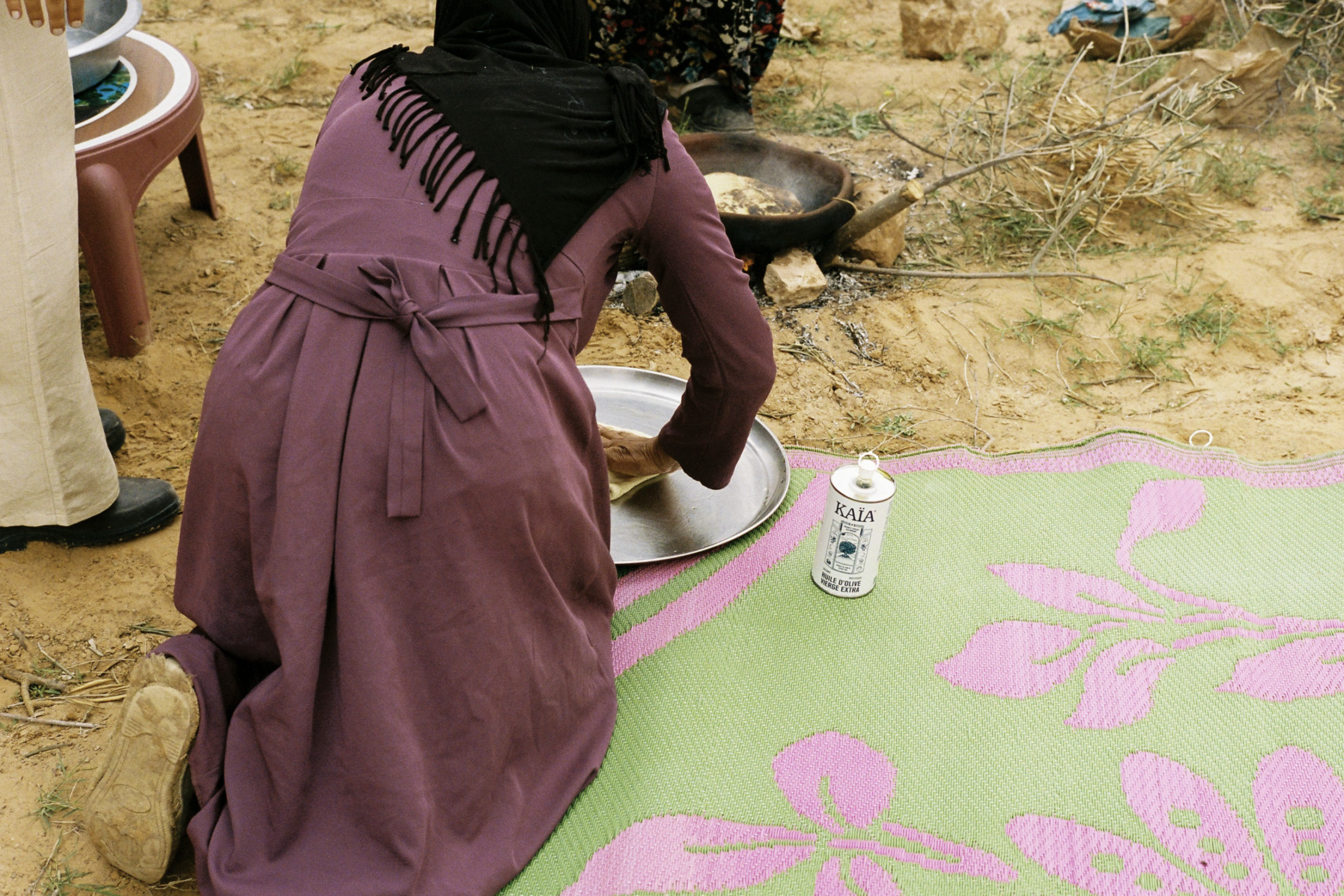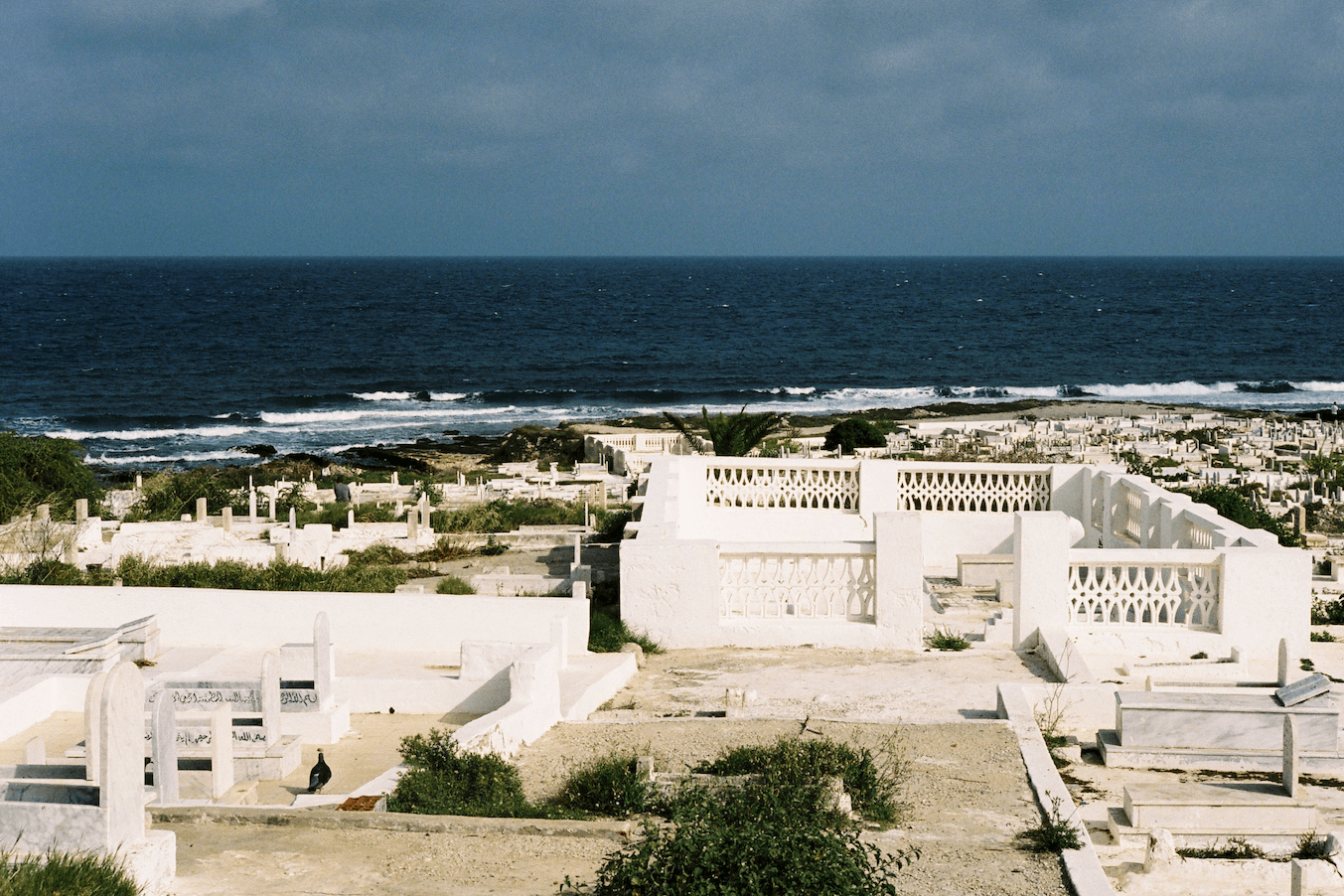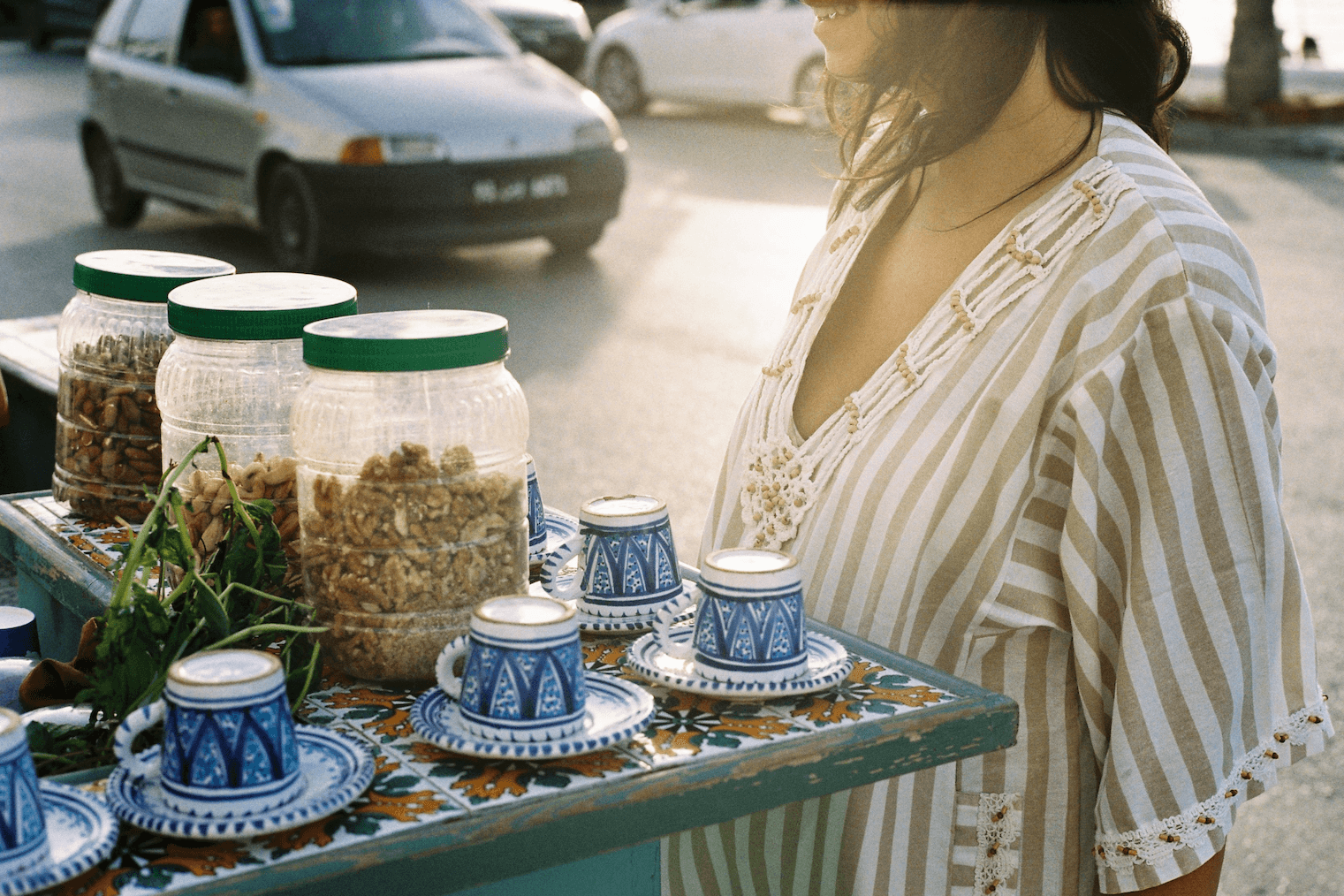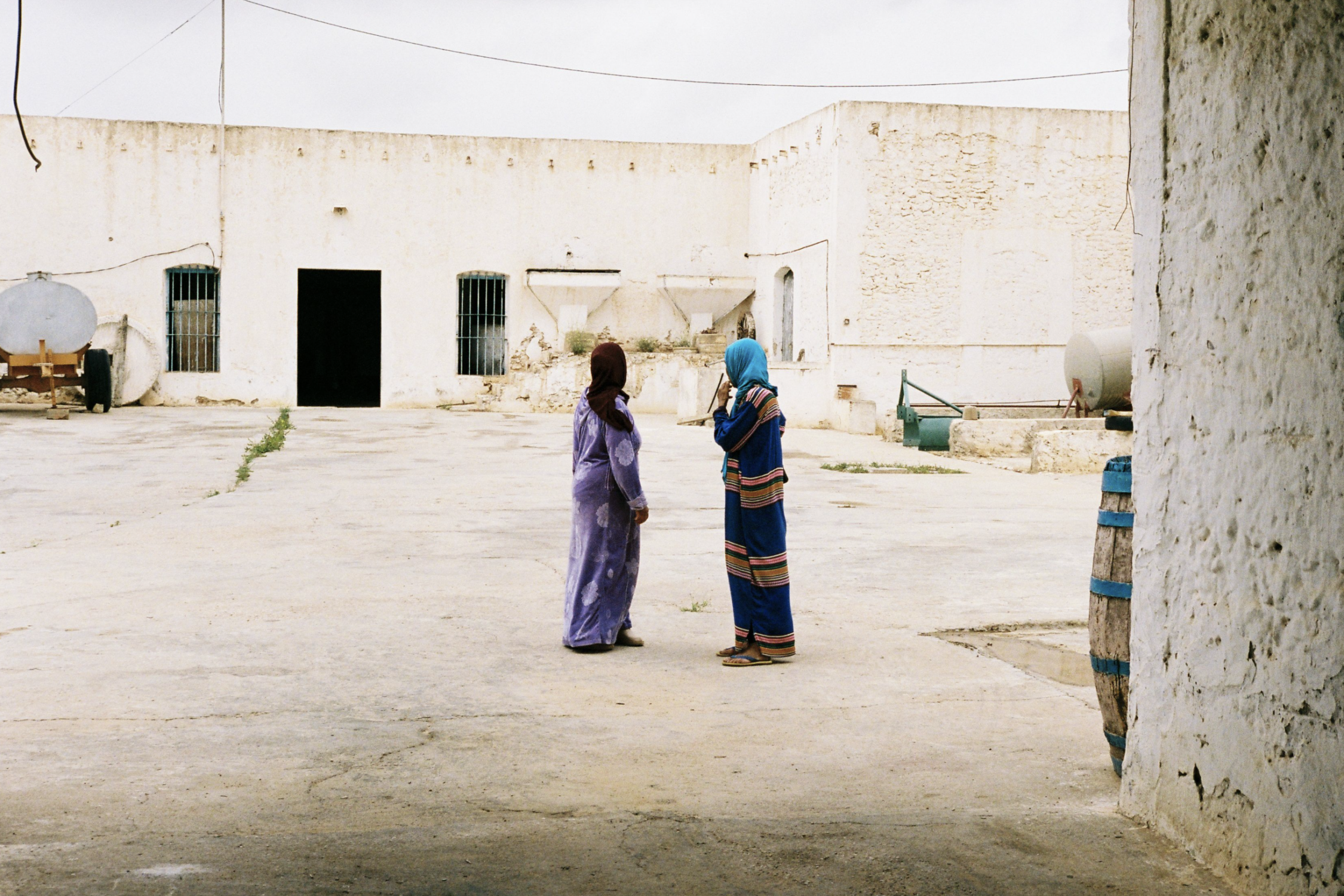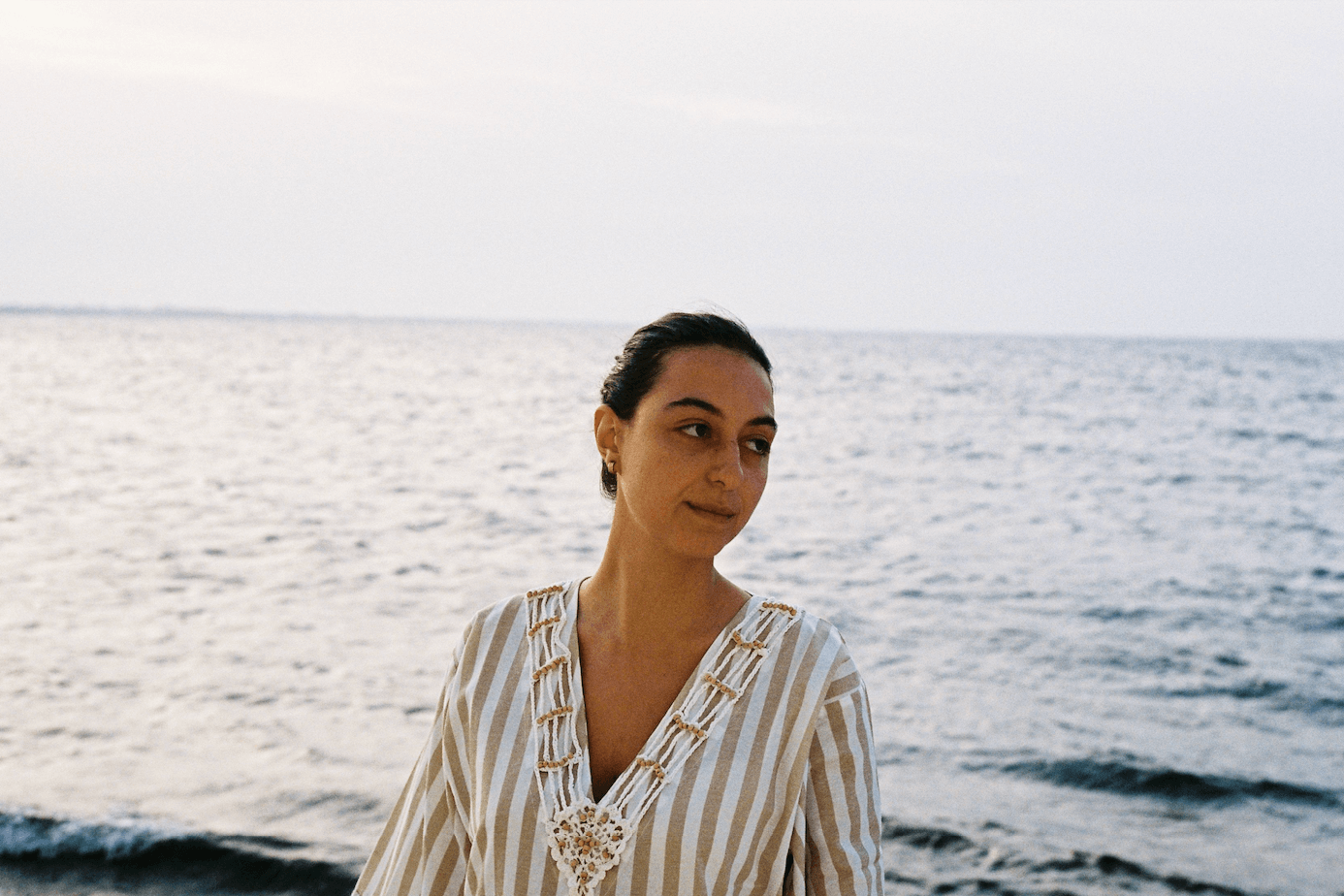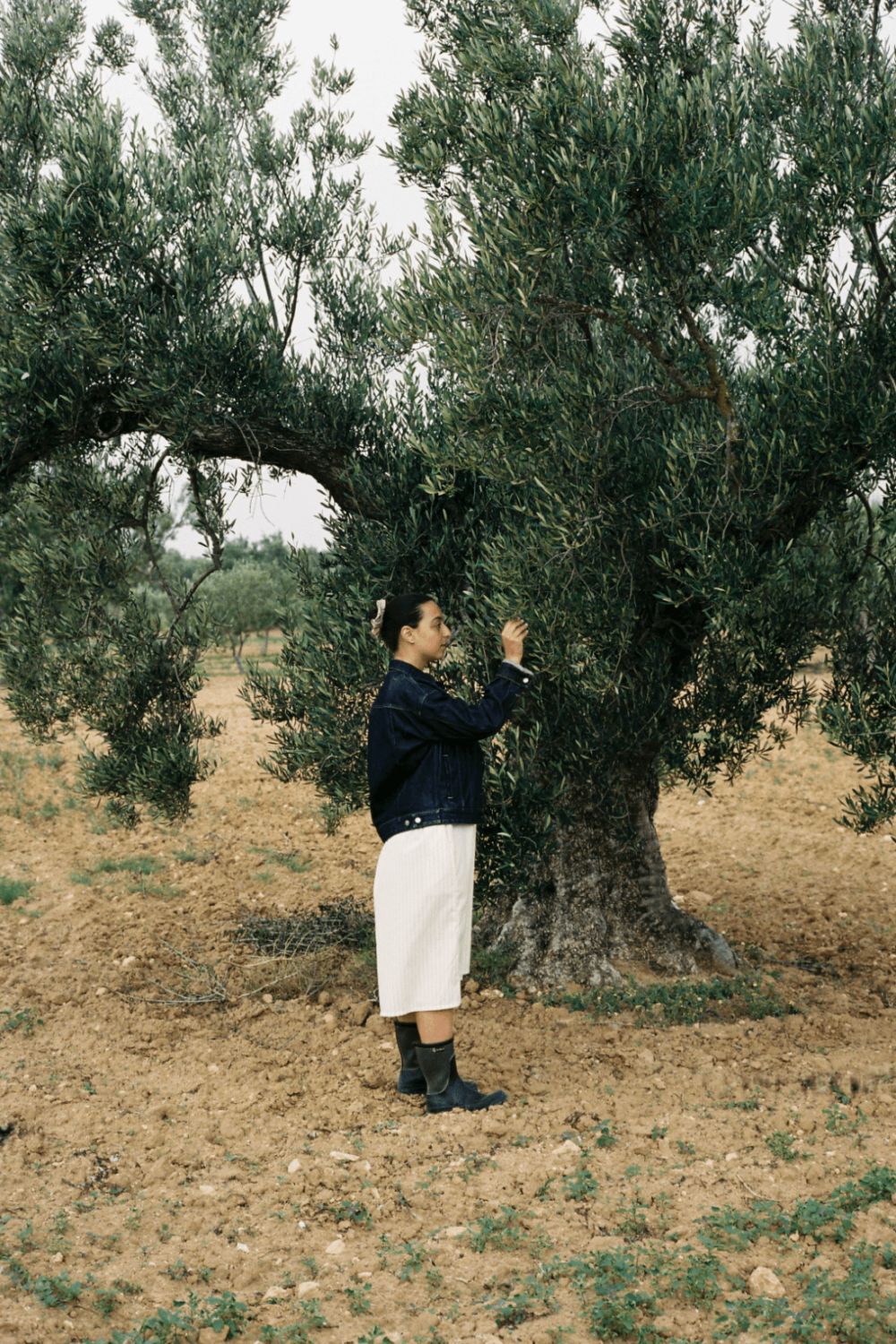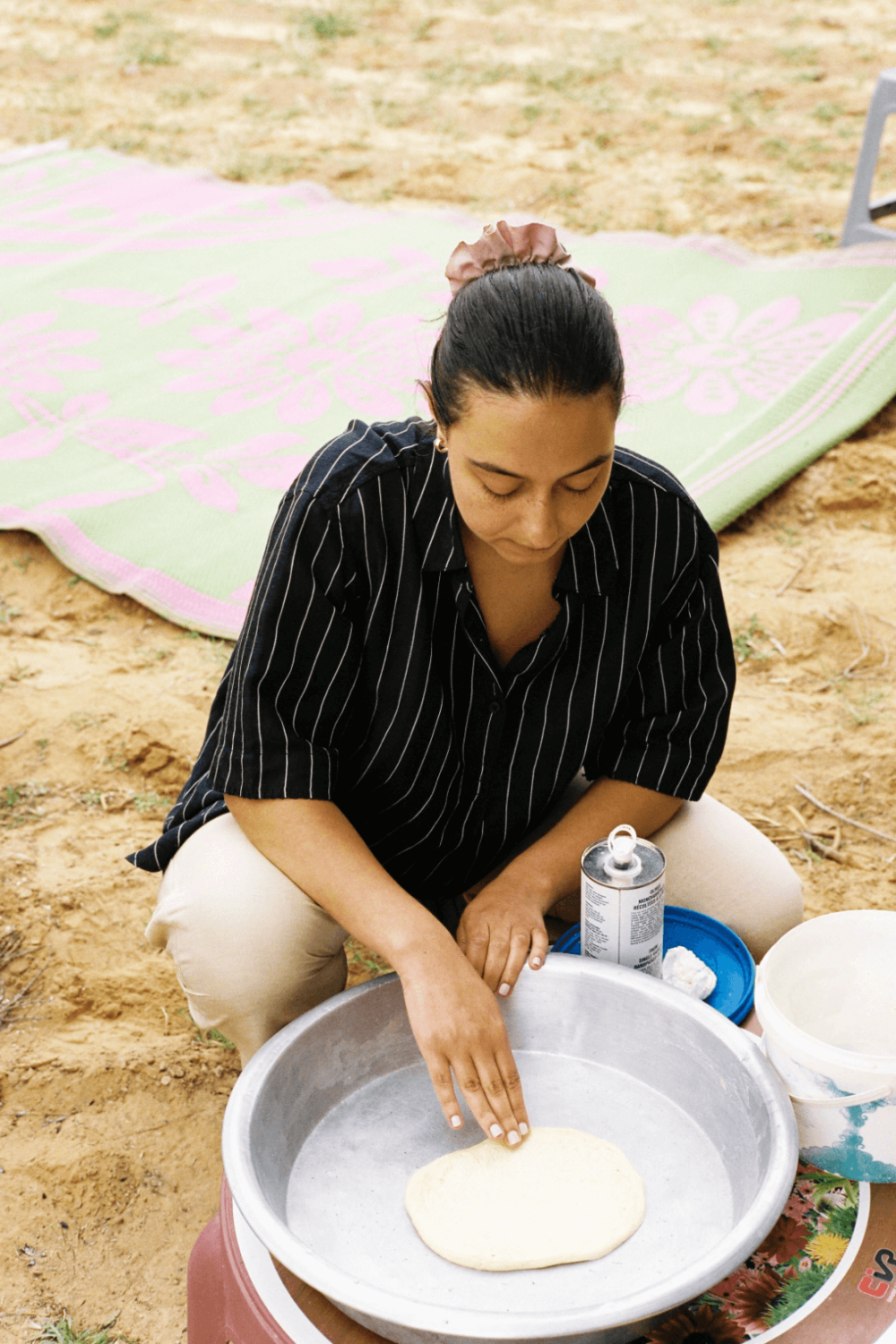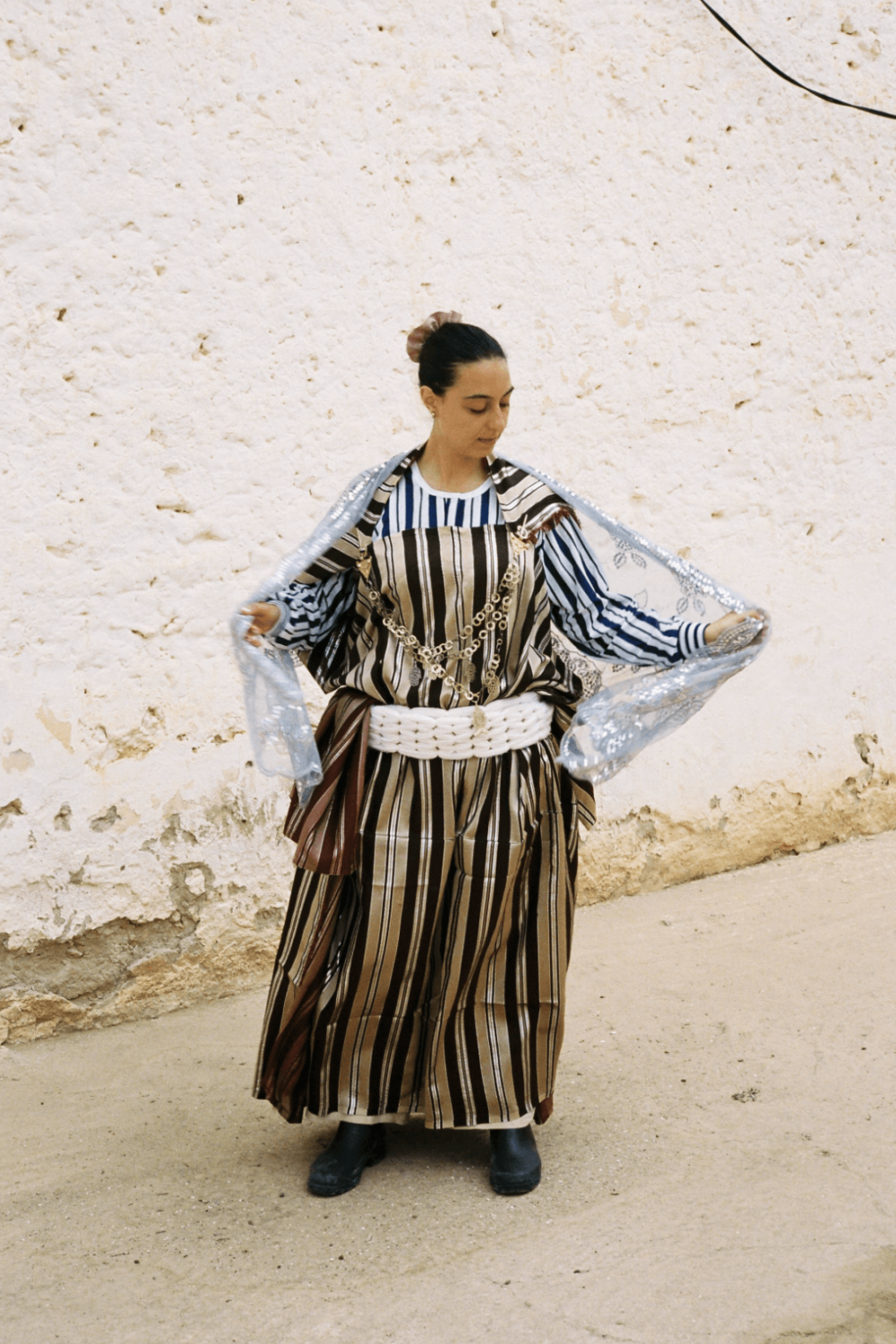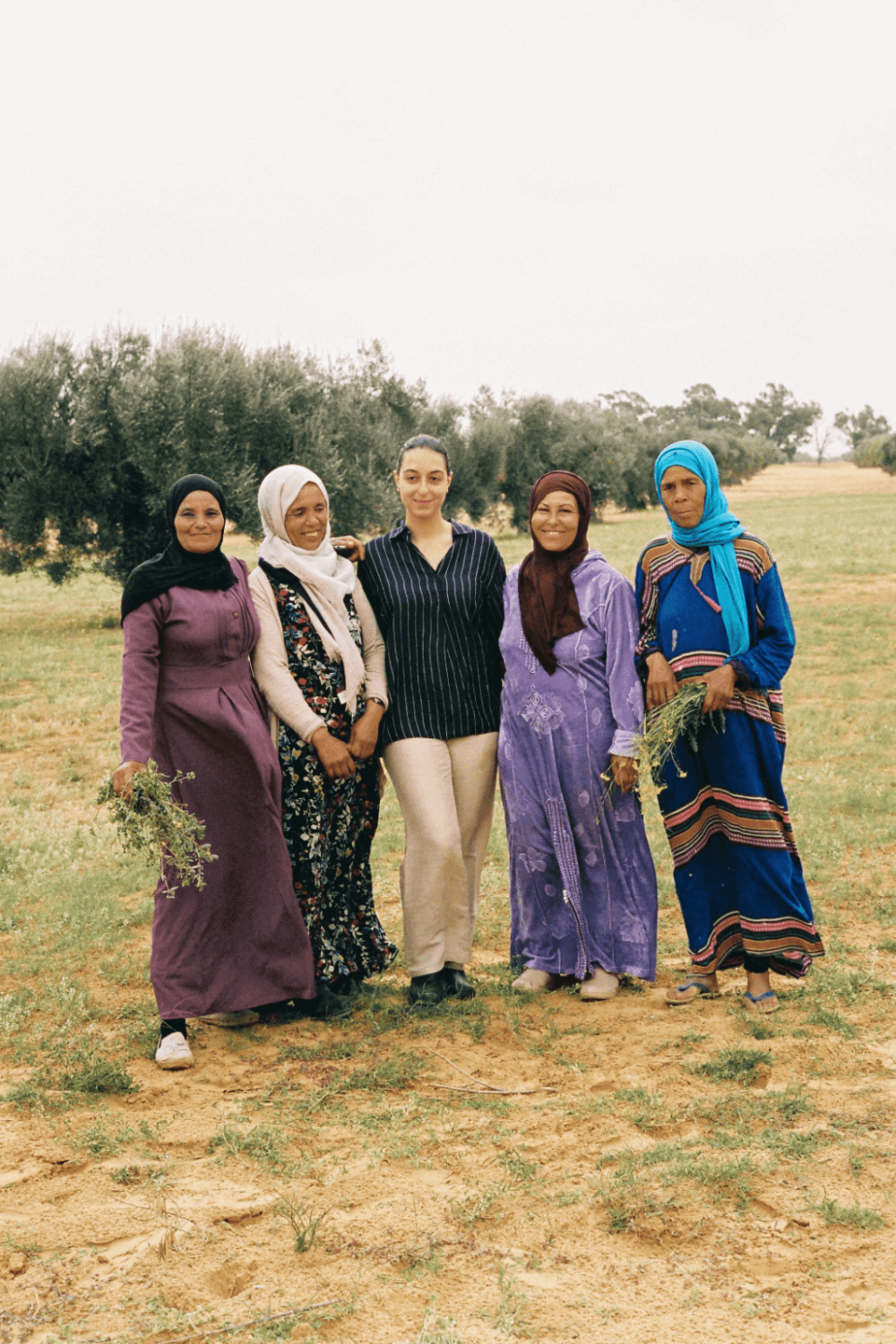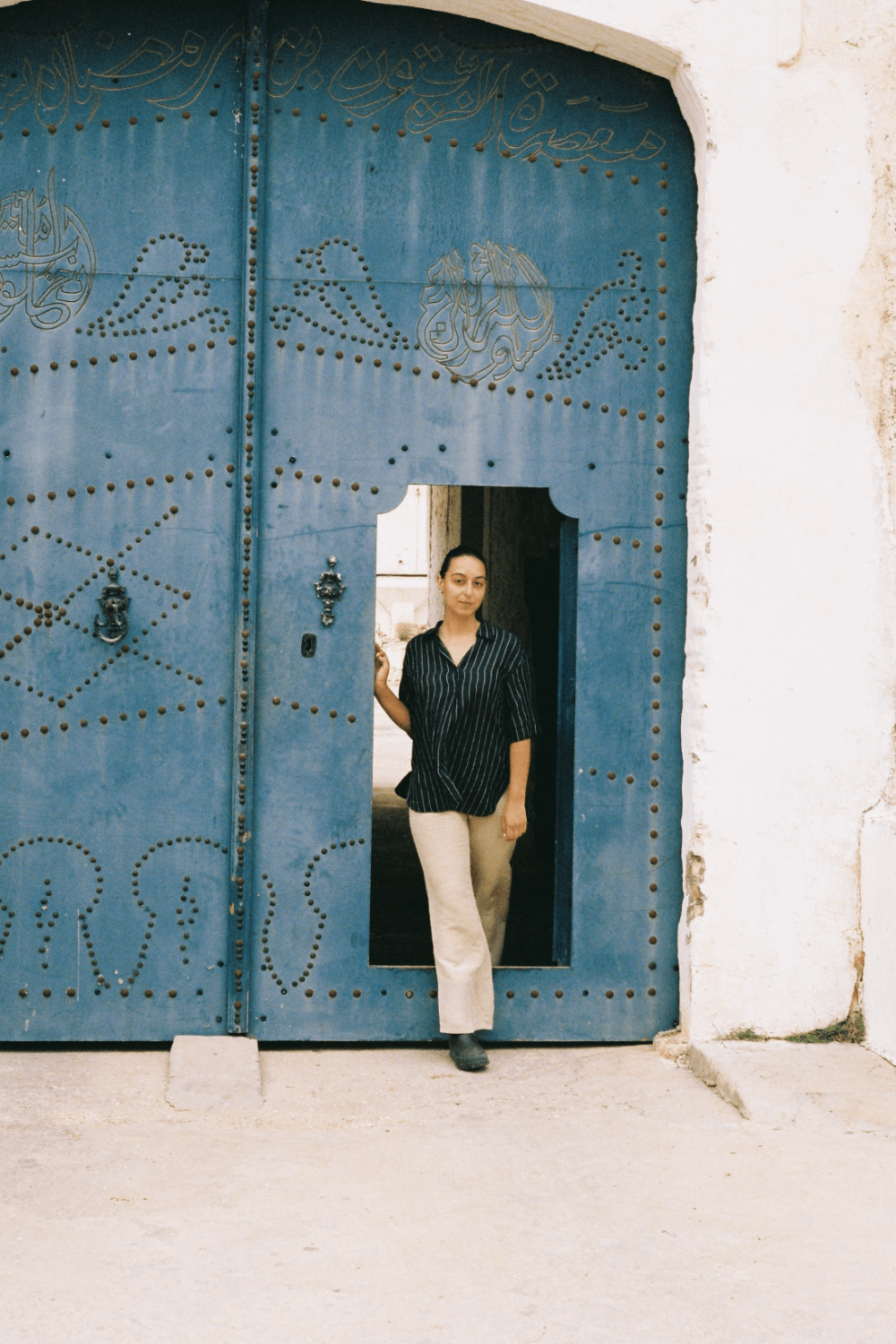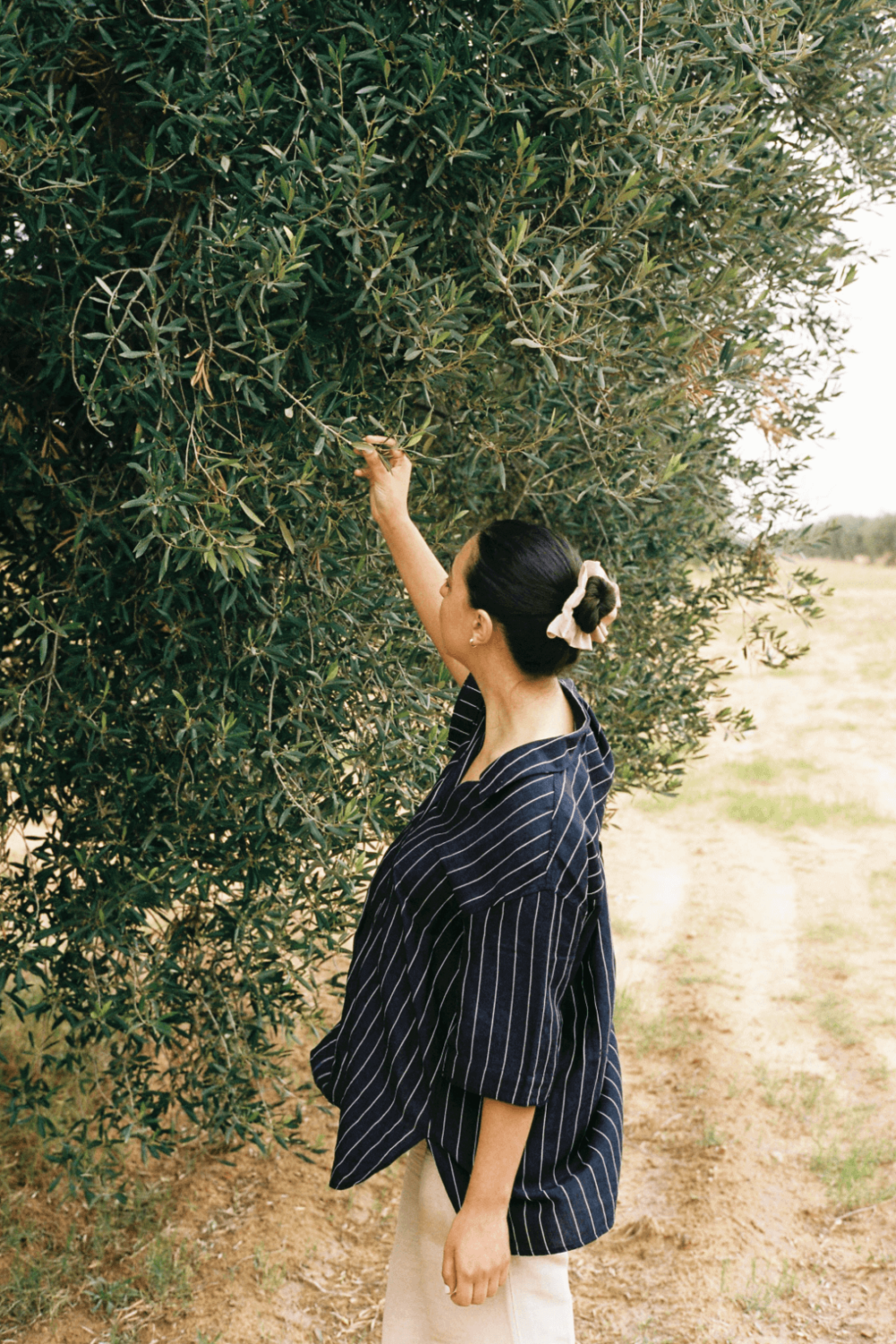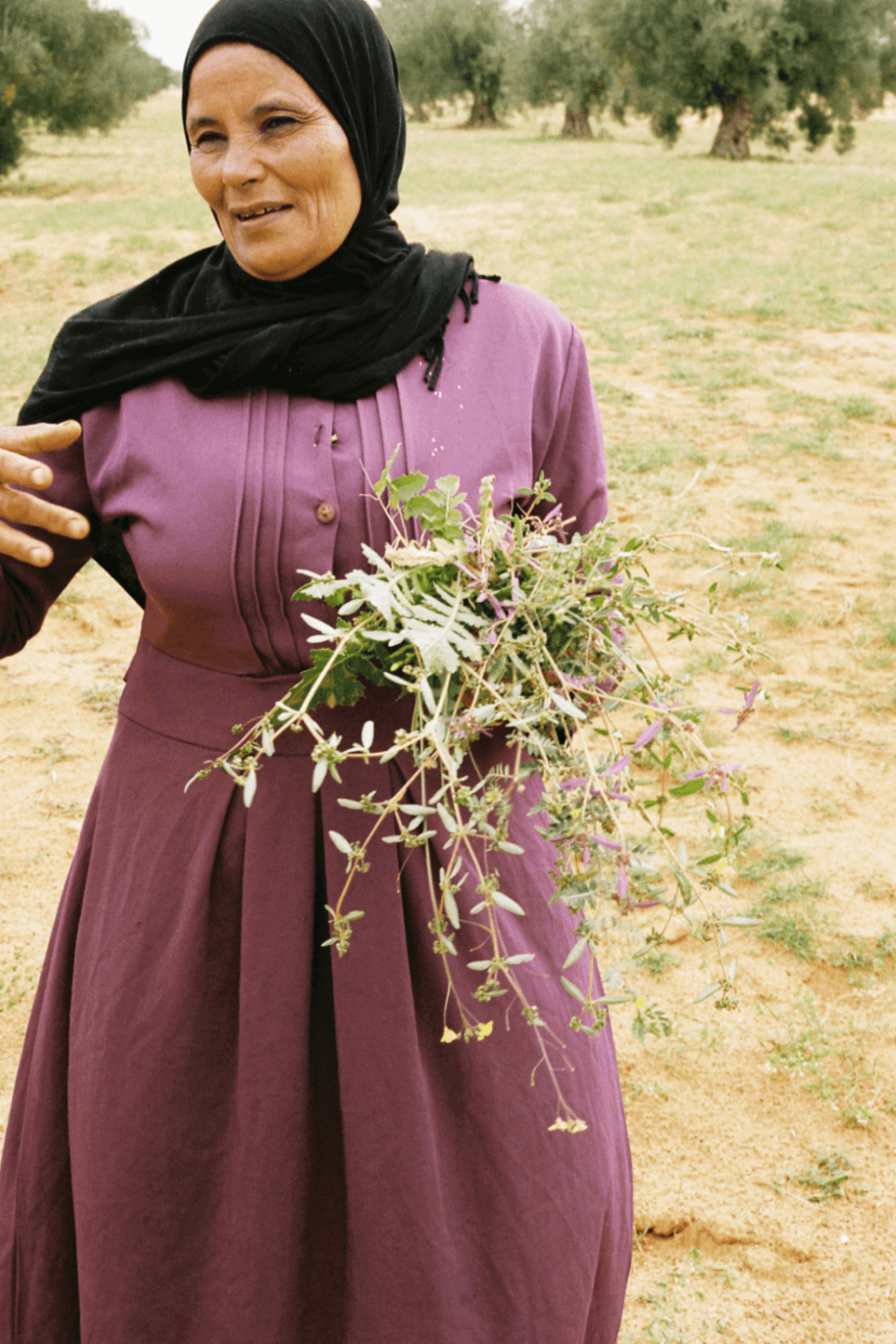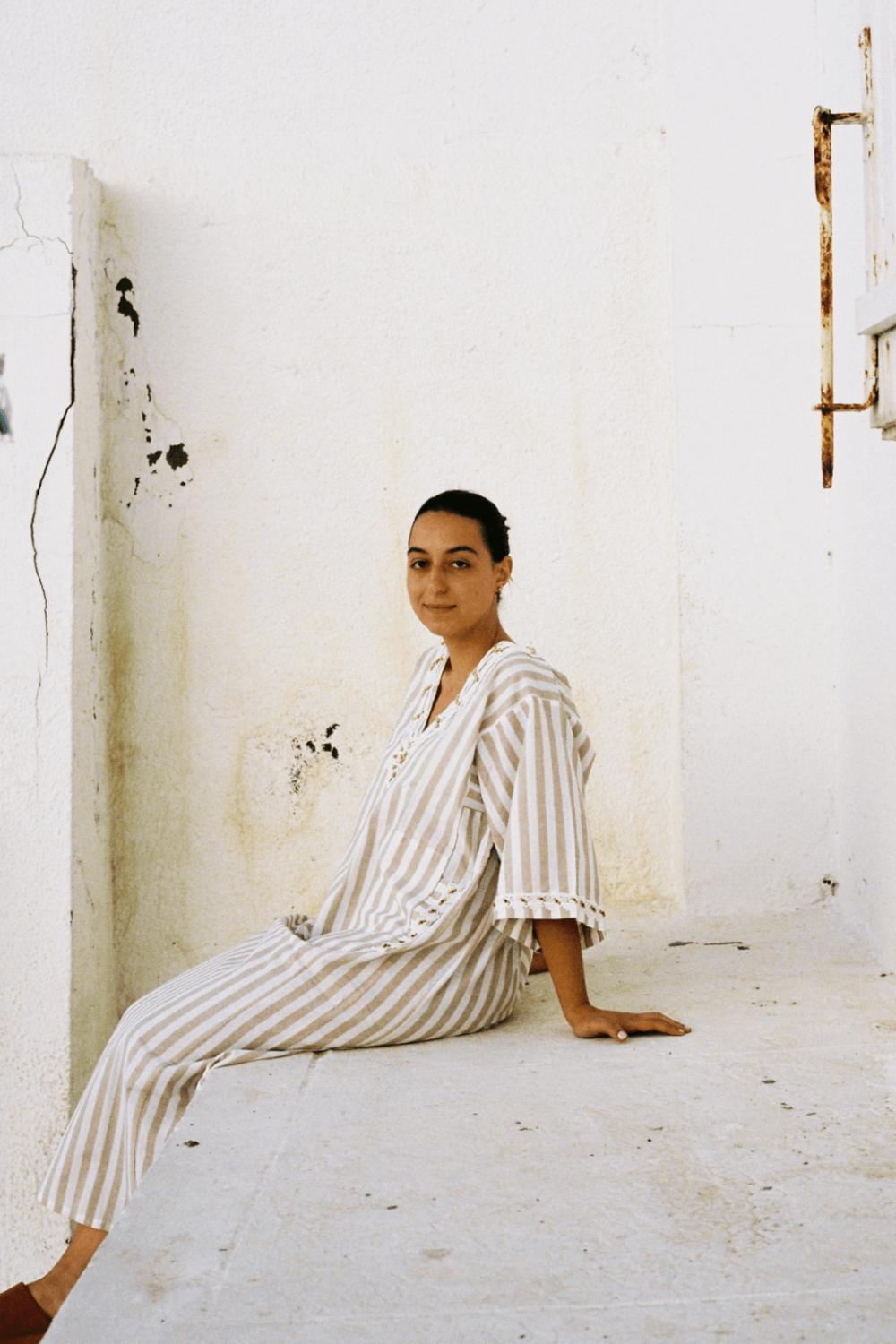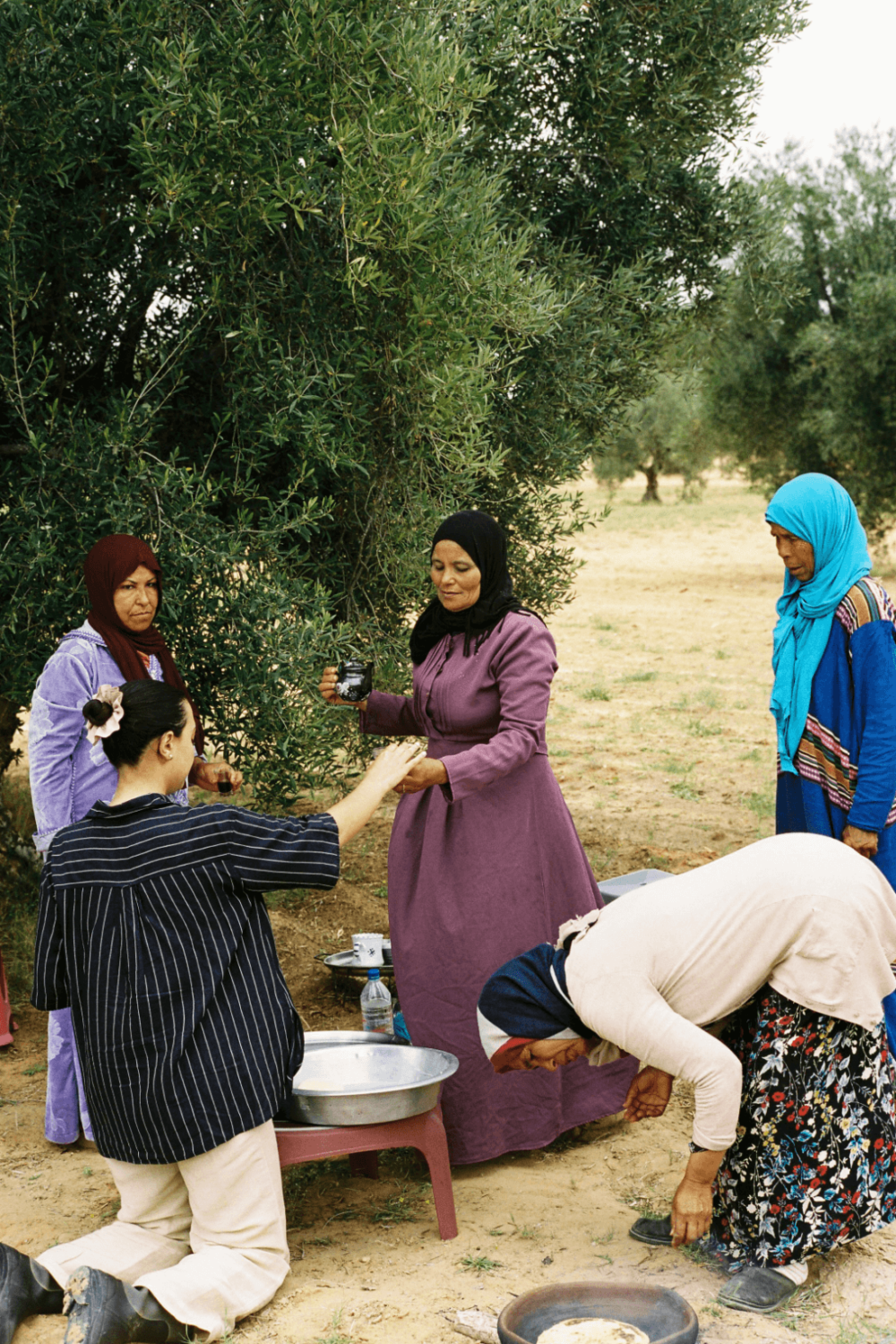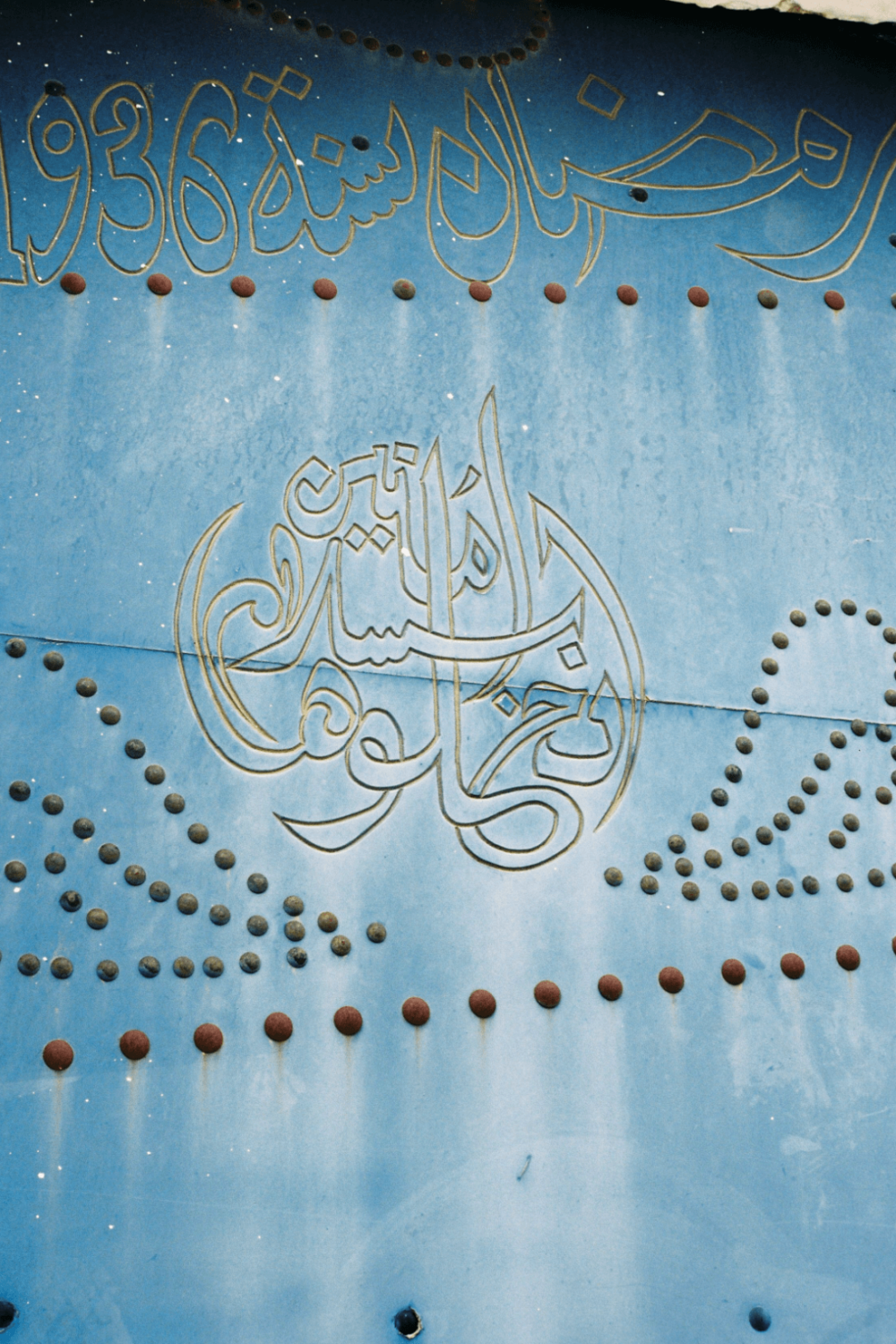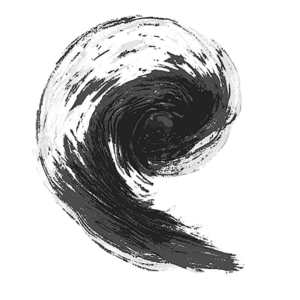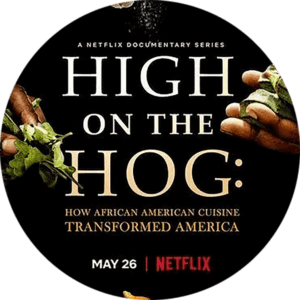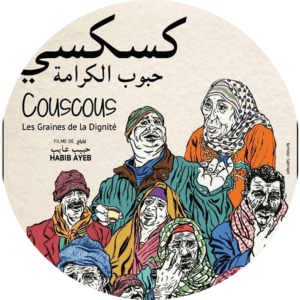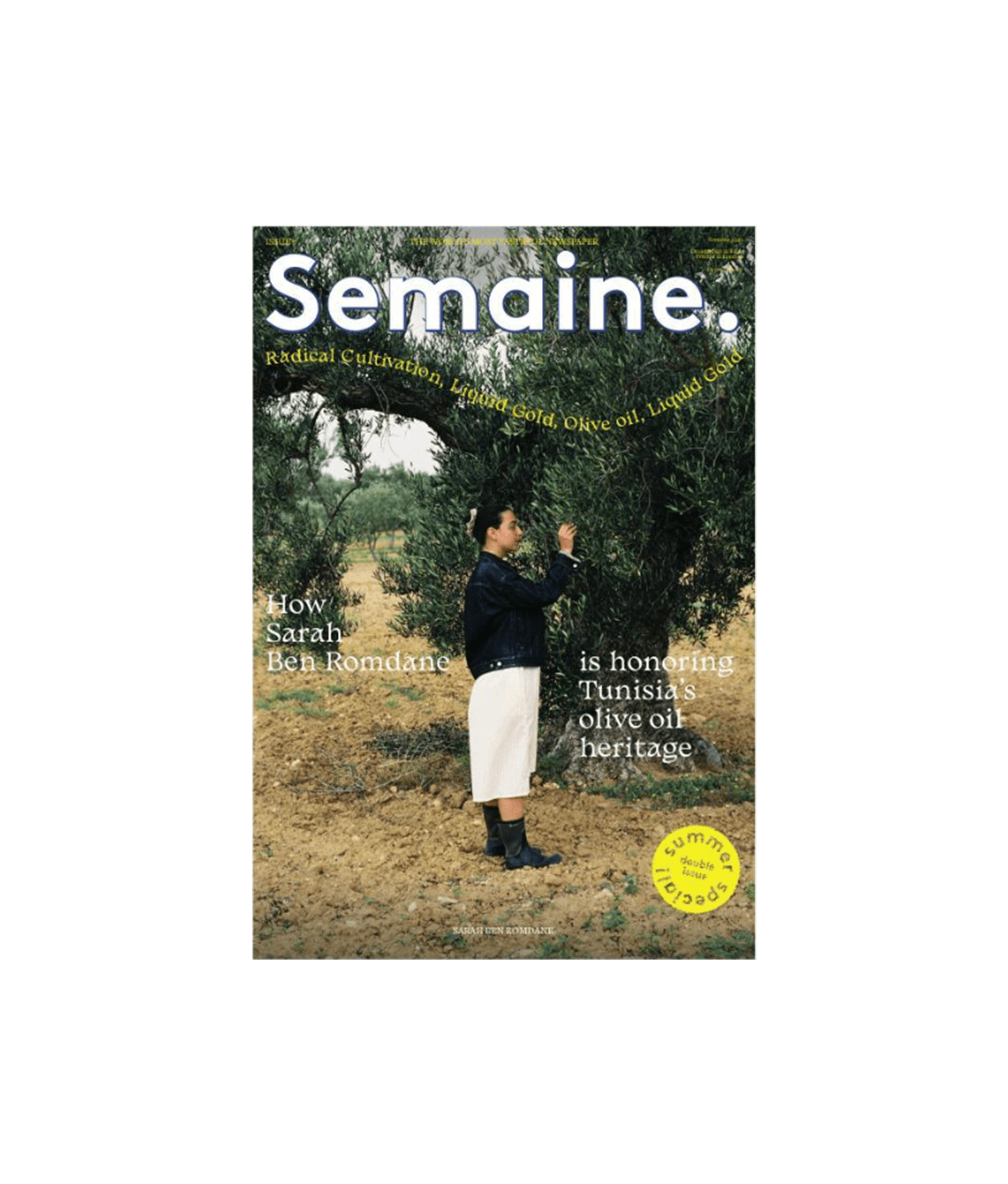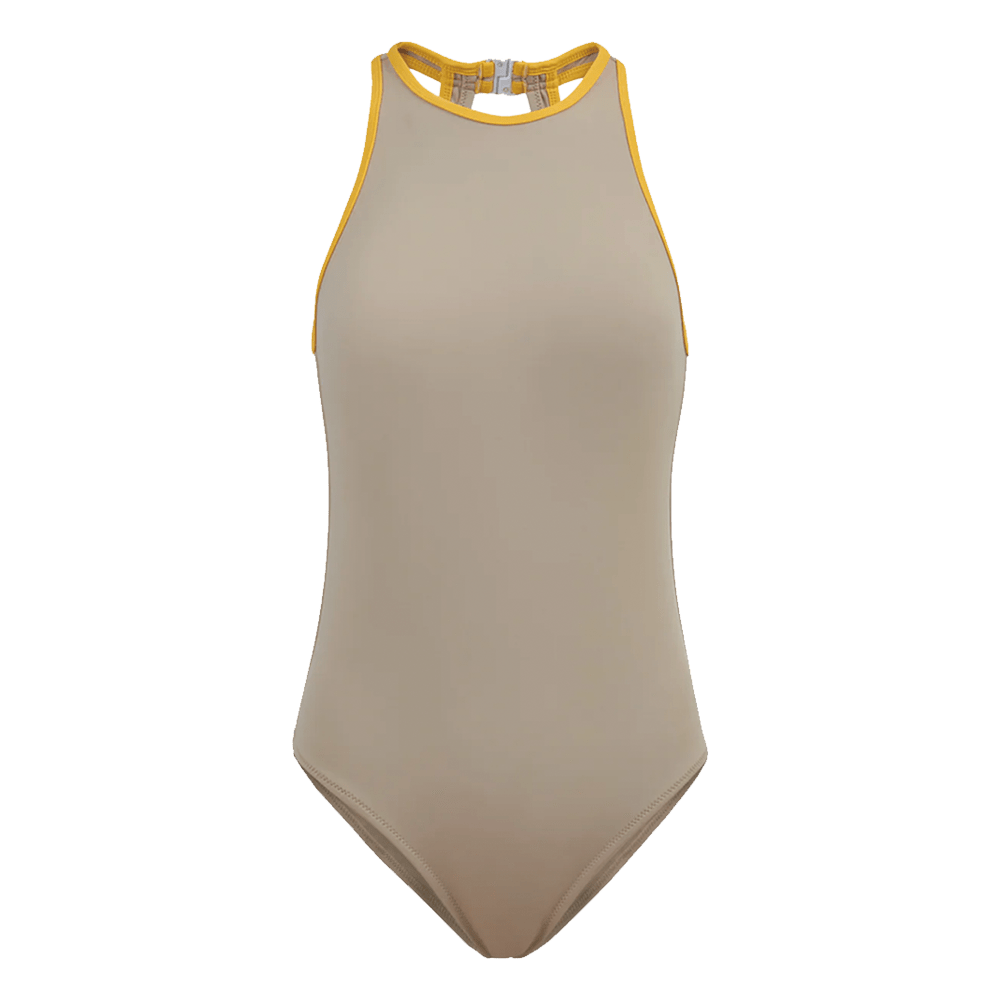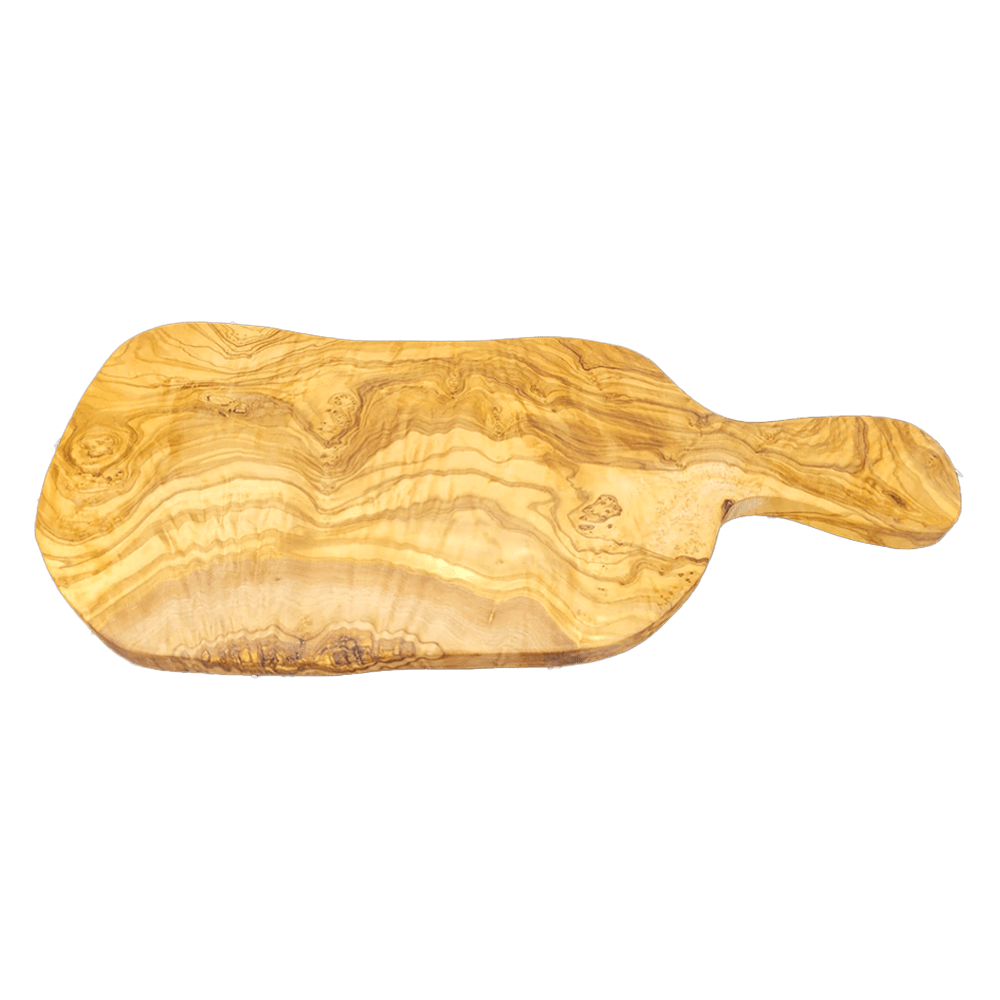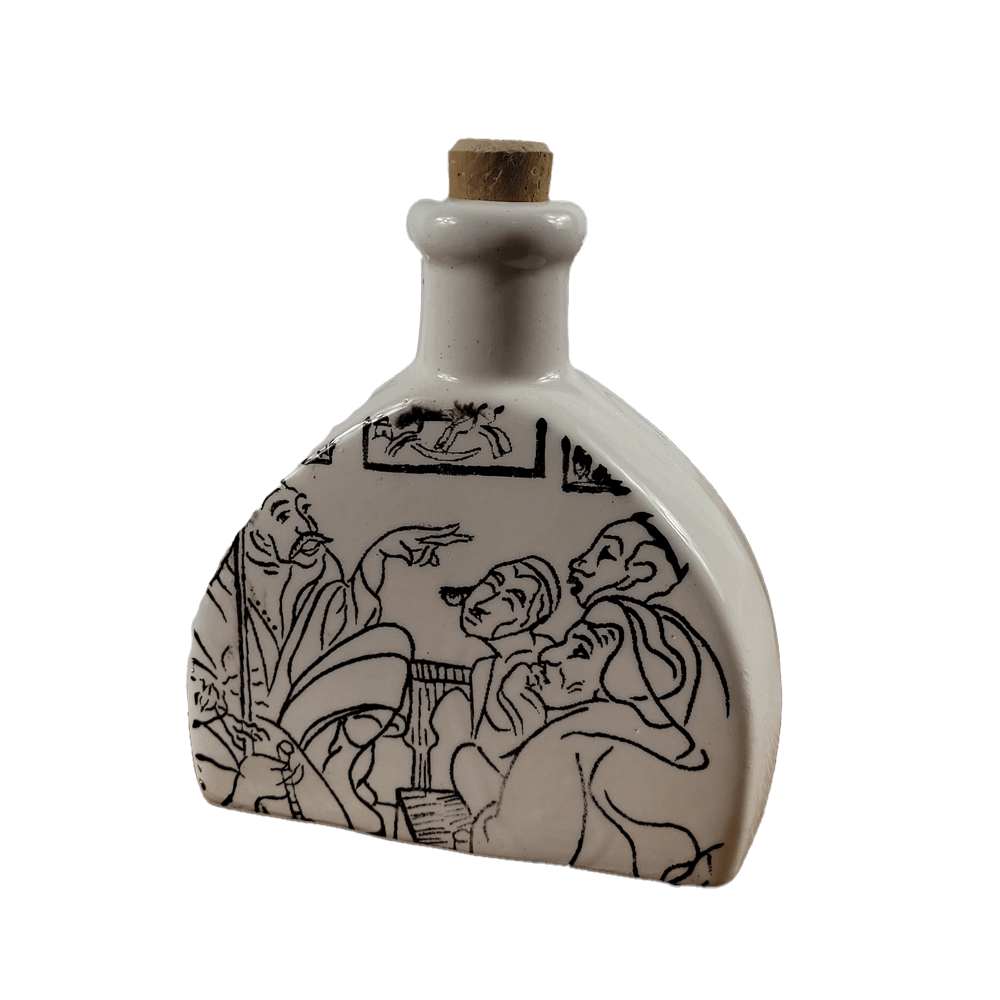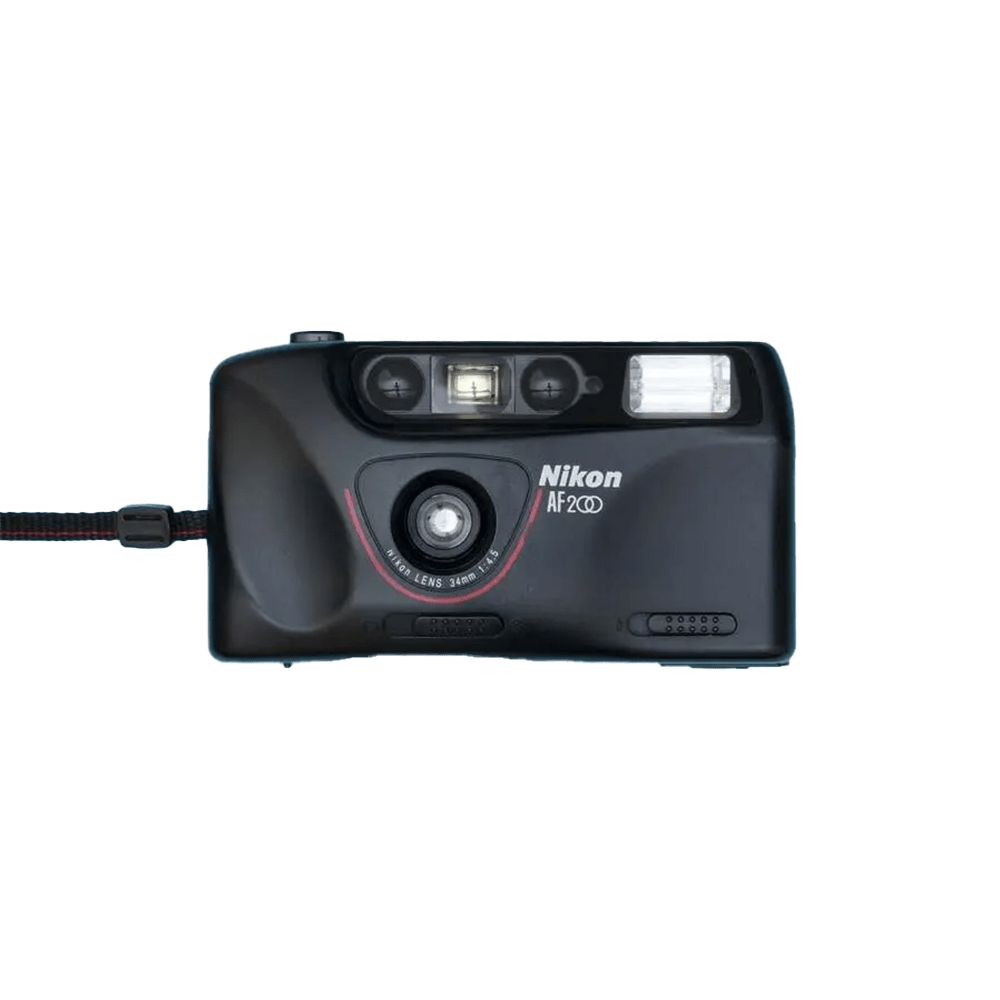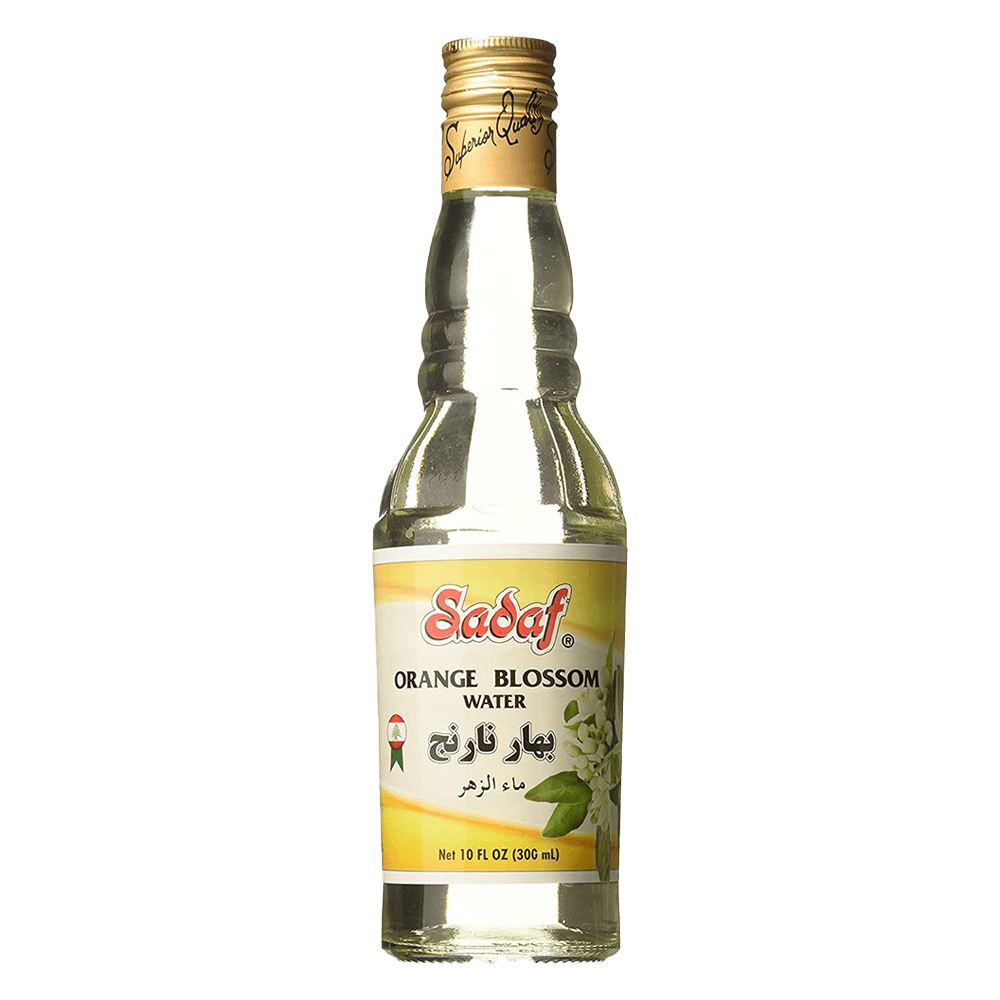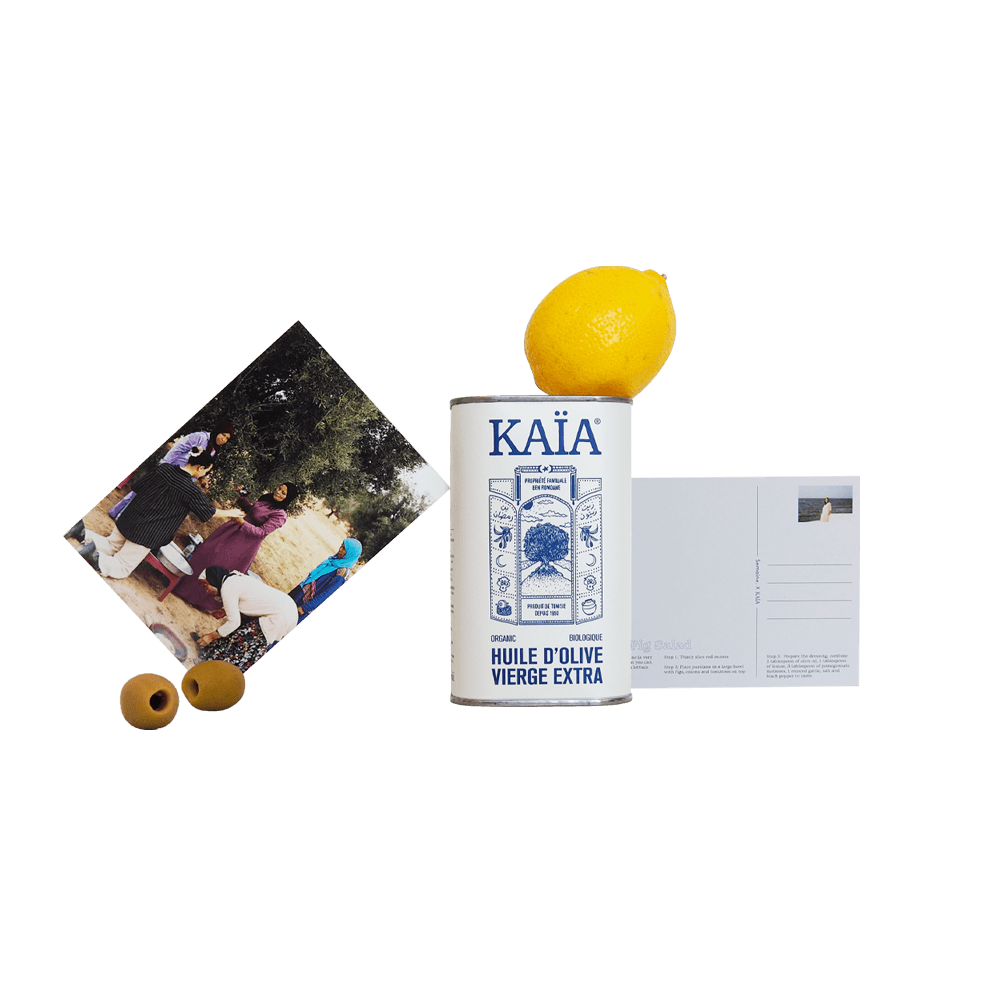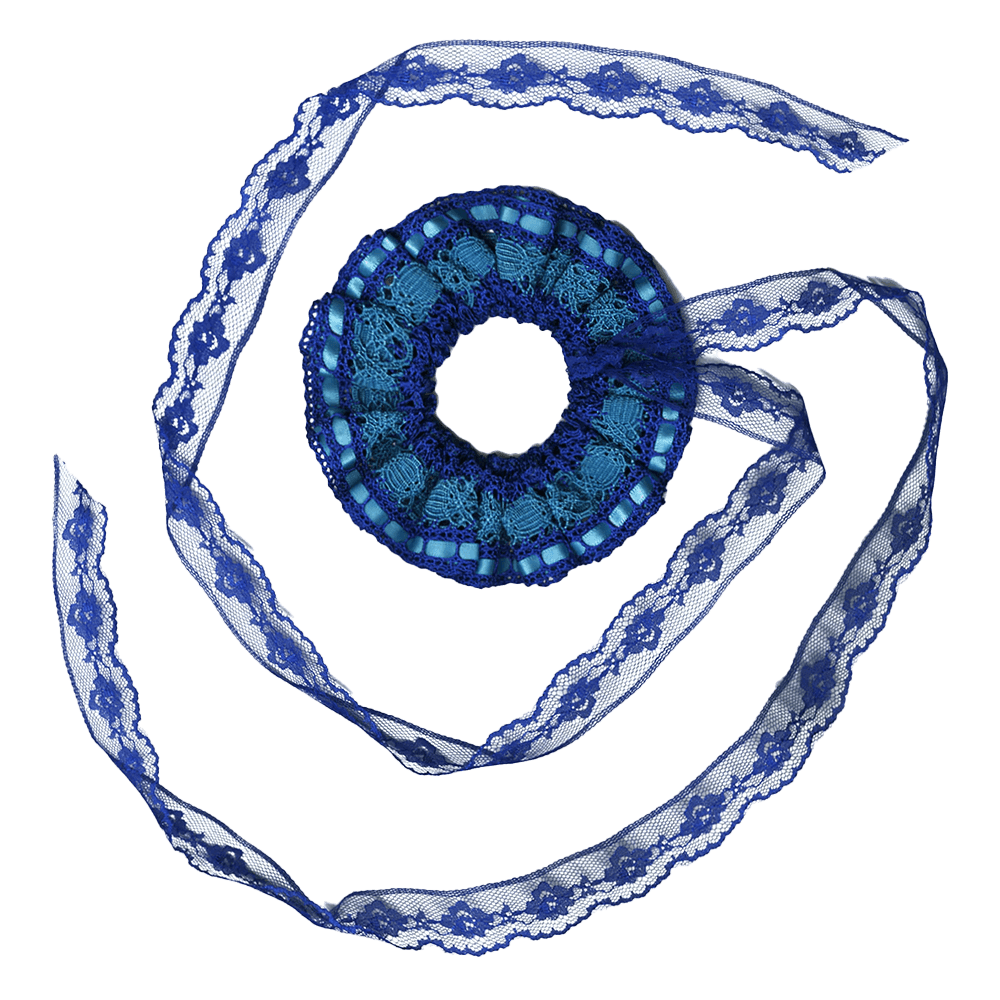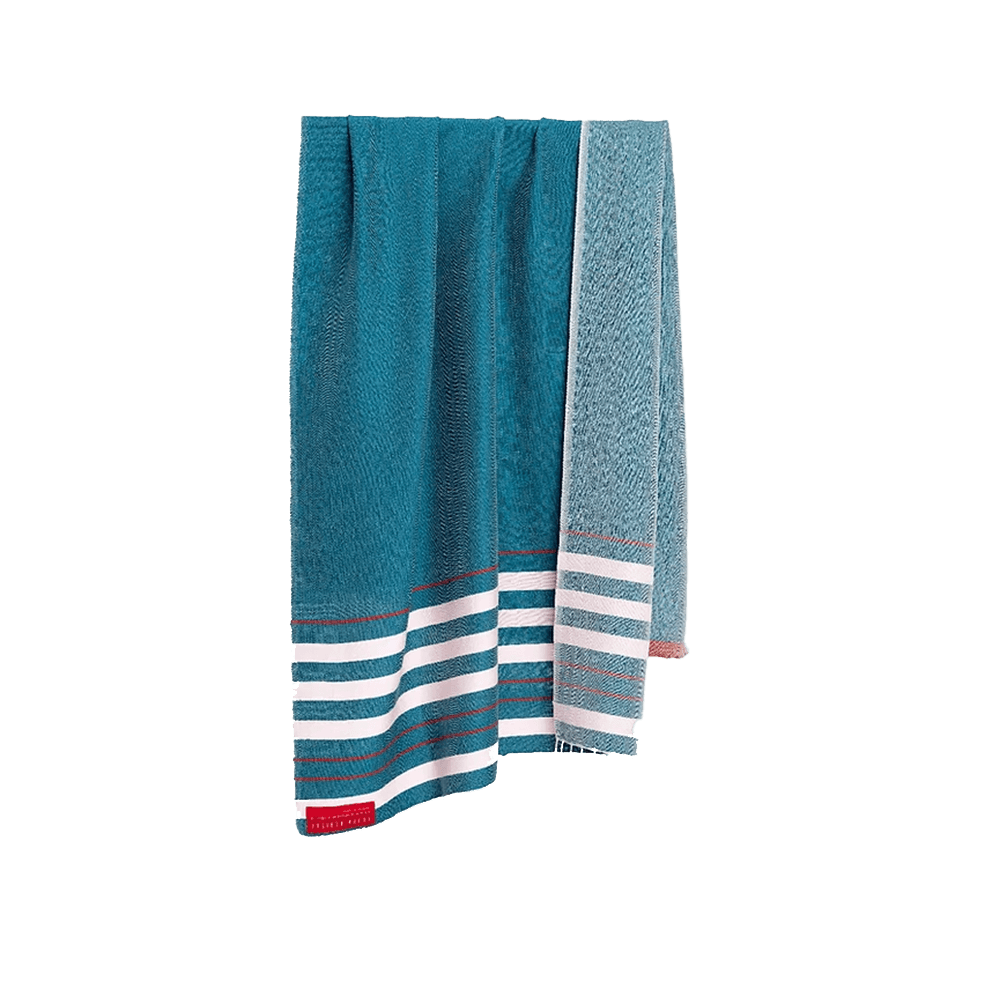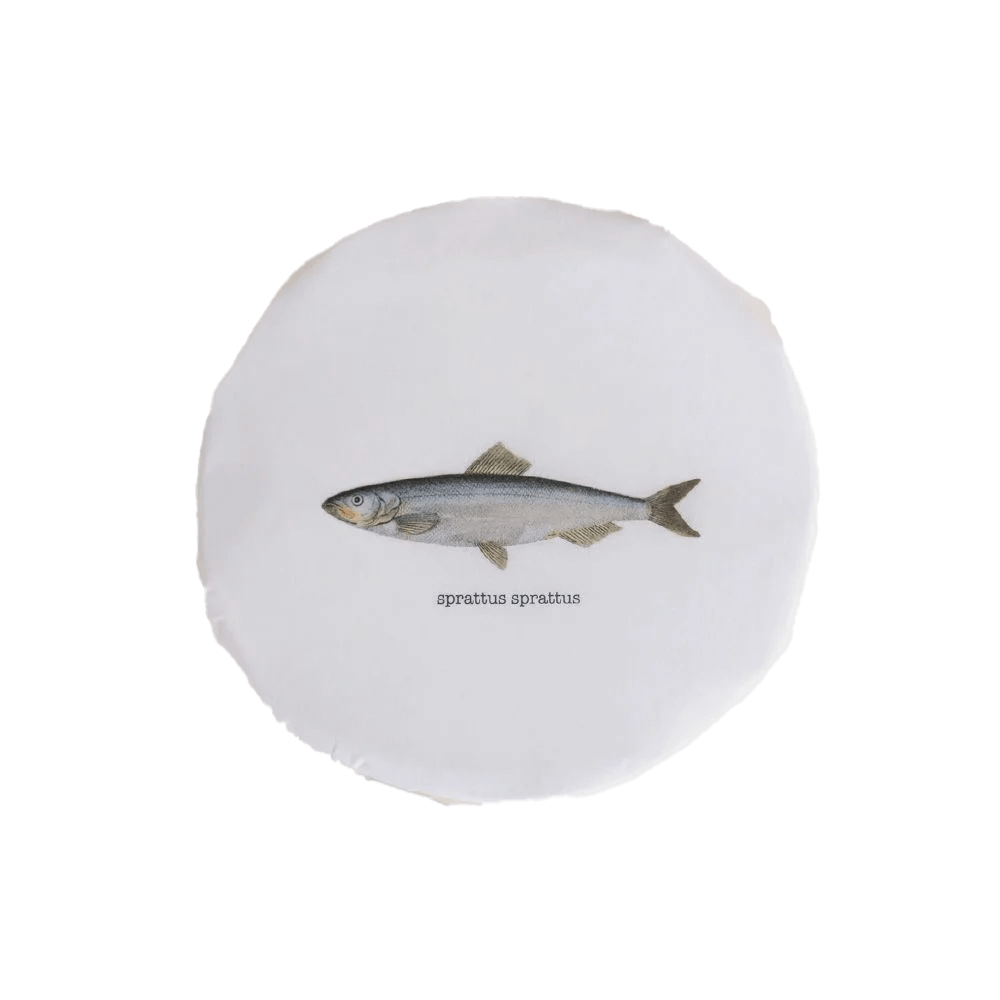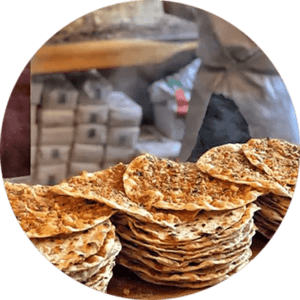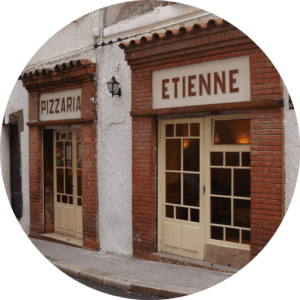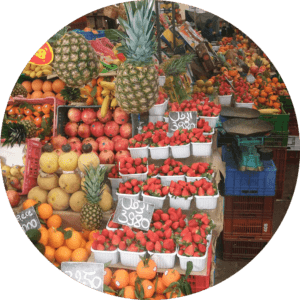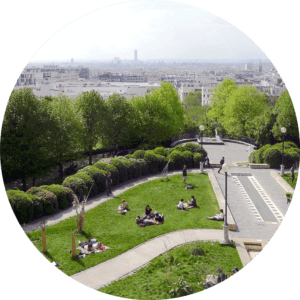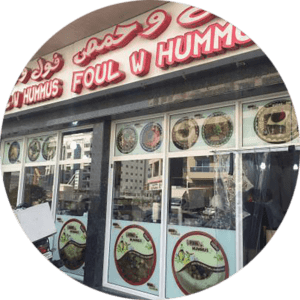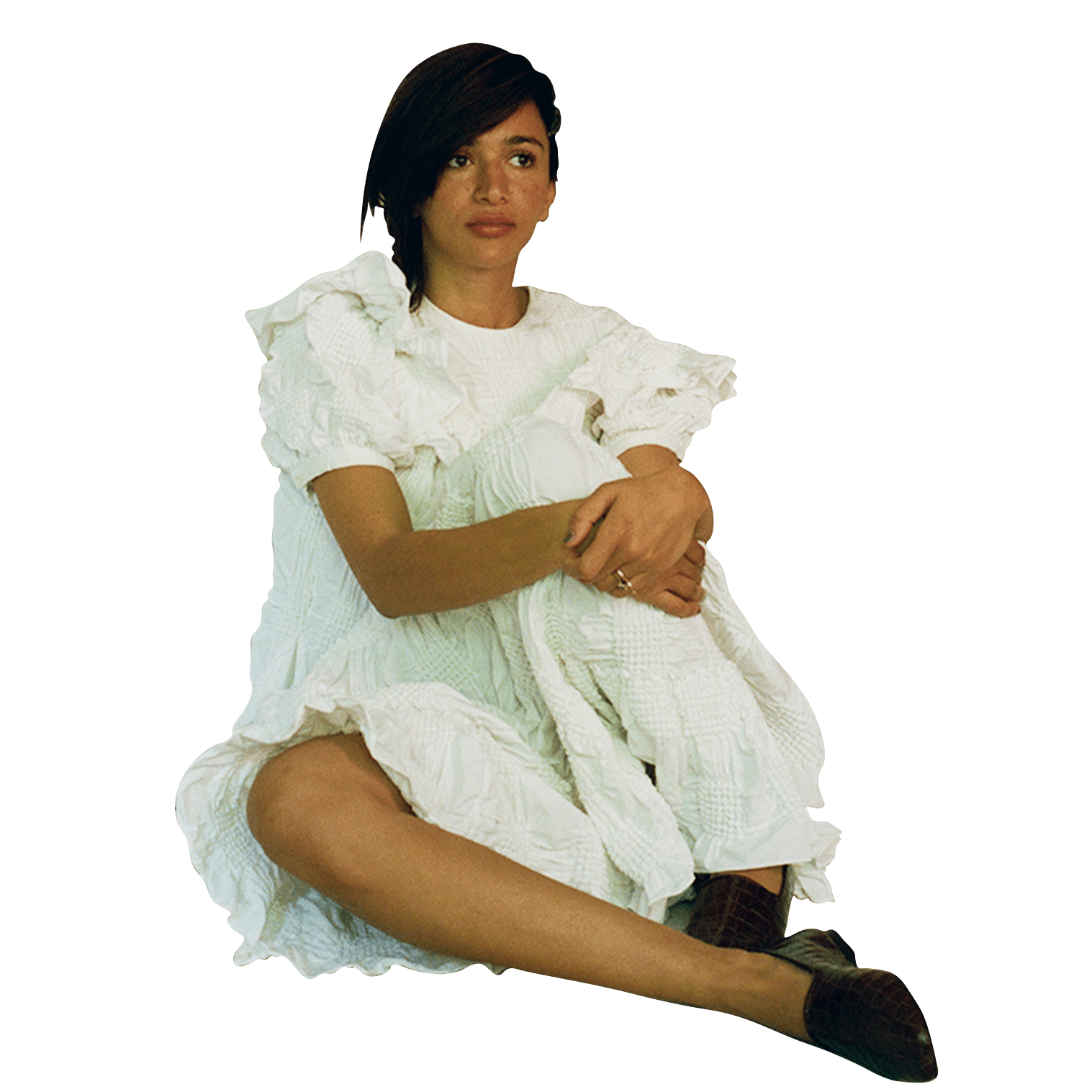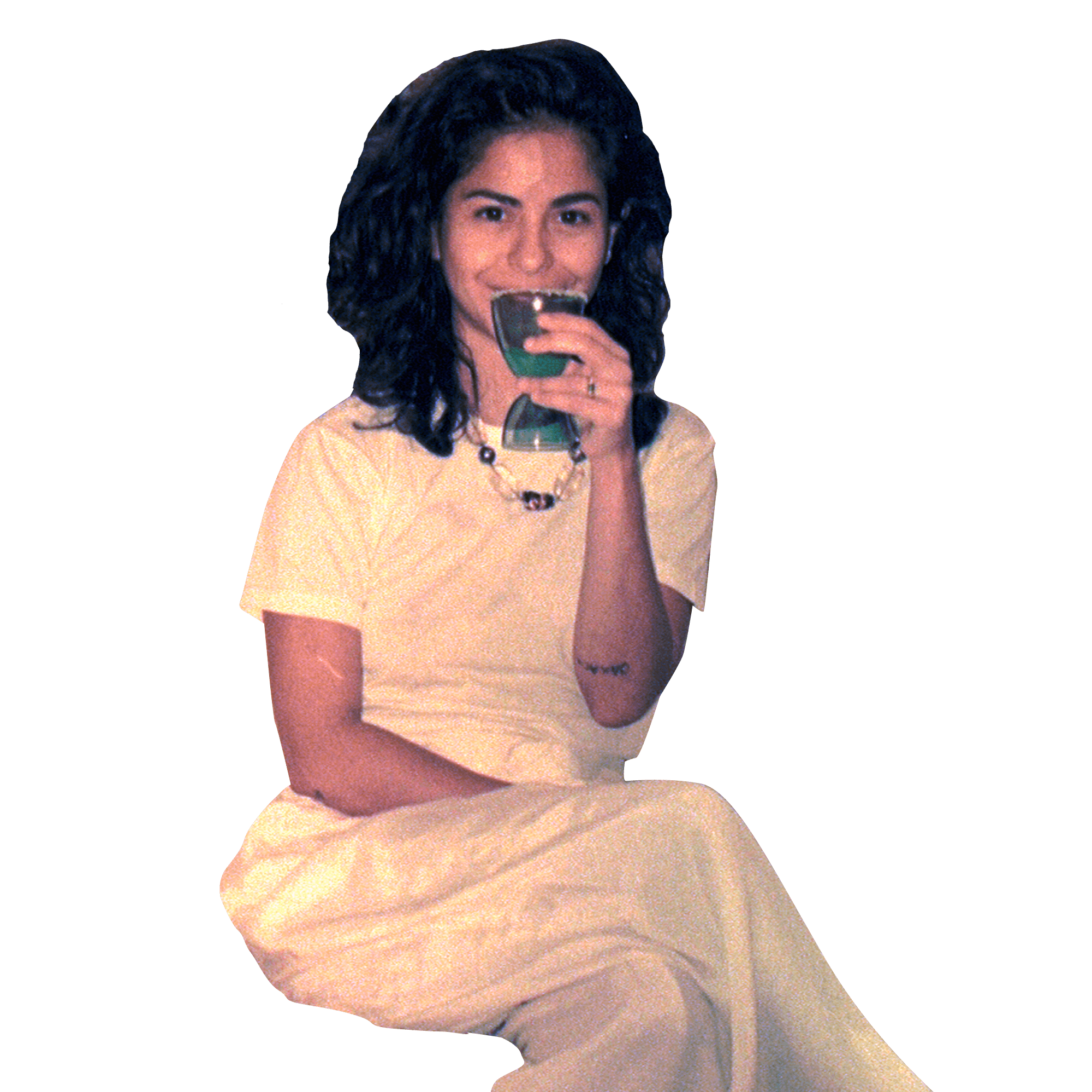Join us as we embark on a sensory voyage through the fascinating life of Sarah Ben Romdane, where olive oil becomes more than just a culinary elixir—it becomes a symbol of resilience, cultural exchange, and the audacity to rewrite one’s destiny. A family history, a Covid crisis, and a desire for change is what brings about this story that will leave an indelible mark on your soul, and a newfound appreciation for the artistry and devotion behind every bottle of liquid gold. An impulse to revisit her family heritage in Tunisia and a thirst to continue their legacy is what brought Sarah to where she is today.
Delving into Sarah’s enchanted world, we were lucky enough to accompany her as she gracefully dances between the verdant groves and the mesmerising golden fields. Her journey unfolds before our eyes, captured in every drop of precious oil that cascades from the olives she cultivates with love and expertise. Witness the intimate moments, the arduous labour, and the triumphs that punctuate her quest for excellence.
The story begins five generations ago with Sarah’s third great-grandfather, Mohamed Romdane. He was a transporter of foodstuffs living in Mahdia, a coastal city in Tunisia. One fateful day, Mohamed made a life-changing decision to invest in olive trees and build a thriving business. “Mohamed Romdane and his son, Romdane Ben Romdane, became the first Tunisians to export their olive oil to the United States, displaying an unwavering pioneering entrepreneurial spirit.” From that point on, the Ben Romdane family continued to distribute Mahdia’s olive oil throughout 19th-century America. Sarah emphasised the significance of this achievement, noting that at the time, it was primarily the French or Italian communities in Tunisia who had the means to engage in such exportations. The tradition of exporting their family’s olive oil persisted over the generations, passing down to Sarah’s grandfather. “Subsequently, my father and his cousins sold the oil to intermediaries who, in turn, sold it to prominent industrial companies” she tells us.
When the Covid-19 pandemic disrupted the world, it presented Sarah with an opportunity to reassess her way of life. “I found myself wondering how we could exist in such a catastrophic world,” she reflected. As soon as Tunisia reopened its borders, Sarah swiftly boarded the first available plane. Initially intending to take a three-week vacation, she ended up staying for six months. The pandemic had a profound impact on her, causing her to question the purpose of her own existence. “We had just come out of a lockdown, and everyone was grappling with a state of semi-social anxiety, pondering the meaning of our lives,” she revealed. It was during this period of introspection that Sarah started asking herself how she could reorganise her life to make it healthier, happier, and more sustainable.
Tunisia, with its serene atmosphere, revealed itself as the answer. Despite the political and economic challenges that the country has faced, Tunisia remains a country with a hugely diverse and rich cultural heritage, stunning landscape, and a vibrant society. Since the Tunisian revolution and the Arab Spring just over ten years ago, the country has been in political unrest, causing high unemployment levels and an unstable government. This adds to the multitude of reasons why it is so important for businesses such as KAIA to reinvest back into Tunisian commerce and support local artisans. “When I arrived there, I felt an overwhelming sense of peace. It was like finding a sanctuary where I could escape the chaos and stress of my daily European life and reconnect with simple pleasures,” she added. For the first time, living amidst nature, surrounded by olive trees, and basking in the sun, Sarah experienced profound healing. It was at that moment that she decided her next endeavour would be inspired by this place. In June 2021, she launched KAÏA, a project aimed at reviving her family’s olive oil production, which had thrived for five generations in Tunisia but had been interrupted along the way.
KAÏA draws inspiration from the name Rhokaya, which carries multiple meanings in Arabic. Sarah emphasised the idea of an elixir that nourishes and heals, a product that is both simple and sacred. She describes herself as an ambitious and passionate individual, stating, “My love for my roots, my dedication to political causes, and my enthusiasm for storytelling make KAÏA a natural extension of my ambitions.” Her mission is clear: to amplify the visibility of Tunisian traditional terroir by producing her own olive oil. “I have always aimed to bridge the gap between my roots and my professional life,” she explained. Thus, Sarah decided to spend half of her year living in the Tunisian countryside.
With a Syrian mother and a Tunisian father, Sarah has always felt deeply connected to her heritage. She shared, “Syria played a significant role in my life because my mother was the one who introduced us to the language and culture.” Unfortunately, due to the ongoing war in Syria, she was unable to continue visiting her home country. Nevertheless, Tunisia holds a special place in her heart as the country where she spent every childhood summer. It represents a peaceful haven that evokes cherished memories. “I have always had a strong attachment to Tunisia; it reminds me of the summers in Mahdia and brings back a sense of naivety and lightness,” she expressed. Mahdia, a small coastal town of fishermen, holds a deep significance for those connected to it, fostering a generational relationship with the territory that many families share.
As a Mediterranean country, Tunisia is a major producer of olive oil, but often, industrial brands take advantage of this. Recently, Tunisia has experienced significant growth in its olive oil production and is frequently ranked among the top five global producers, alongside countries such as Spain, Italy, Greece, and Turkey. Sarah points out, “Major industrial players exploit the affordability of Tunisian olive oil by purchasing it in large quantities and using it for blending that ends up on supermarket shelves.” In this process, the unique terroir of Tunisia often goes unnoticed, and the people behind its production feel undervalued. This neglect can lead to an exodus, creating problems of identity, precarity, and inequality.
…for the full article, pick up the issue of Semaine and become a subscriber.
By Selma Cougar, edited by Tori Sharp for Semaine.
Photography by Josephine Schulte.
A guide to life, and the independent cinema.
If there is one thing that is always on Sarah's shopping list, it'll be KAÏA's olive oil.
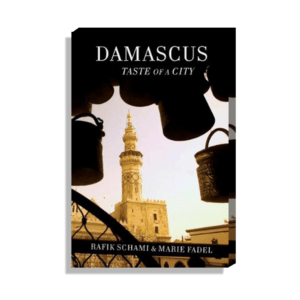
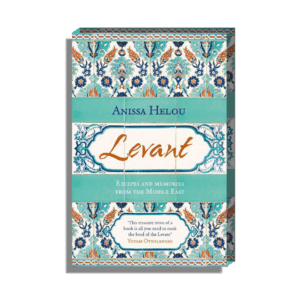
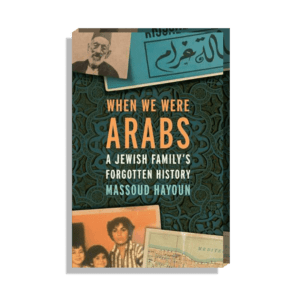
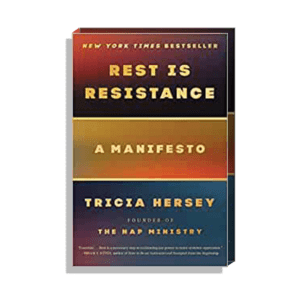
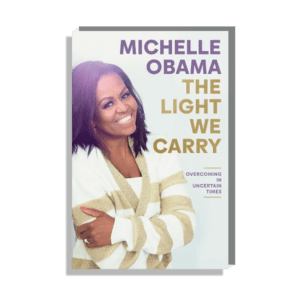
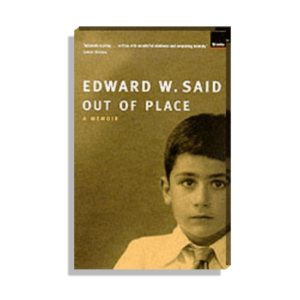
What does the word “taste” mean to you?
Sarah:
Taste is much more than just a sense or a perception. It reflects personality, aesthetics, and political values.
Do you have a life motto that you live by?
Sarah:
A sentence by René Char: “Impose ta chance, serre ton bonheur et va vers ton risque. A te regarder, ils s’habitueront », which translates to « “Impose your luck, squeeze your happiness and go to your risk. Looking at you, they will get used to it.”
What was the last thing that made you laugh?
Sarah:
A video on TikTok!
What are your favourite qualities in a human being?
Sarah:
I love passionate people, who are moved by the simple, real things in life and experience feelings of humanity and compassion for others.
Who is your hero?
Sarah:
Mmmm I’m not sure I have one; I’d say Thomas Sankara or Gisèle Halimi.
What is your biggest flaw?
Sarah:
Probably that I am overly independent.
What is your best quality?
Sarah:
I believe I see the good in people.
What would your last meal on earth be?
Sarah:
It would have to be a 3-course meal, with a mix of hot and cold Levantine mezze as starters (my mother is Syrian by the way!), a Tunisian couscous with fennel as main dish with a side of fried red mullet and Meghli for dessert which is a Levantine dessert made with floured rice pudding spiced with anise, caraway, and cinnamon. And, summer fruits! Can you tell I love eating?
What does success mean to you?
Sarah:
Doing something that serves a bigger purpose: to make the world a better place.
If you had the power to change anything you wanted in the world, what would you change?
Sarah:
I think capitalism and colonialism continue to lock poorer countries out of the picture. I’d make sure reparations are made and more voices are heard.

